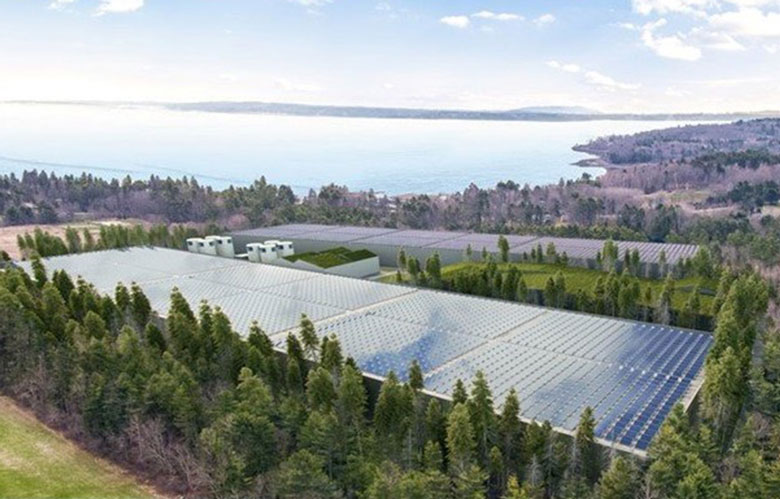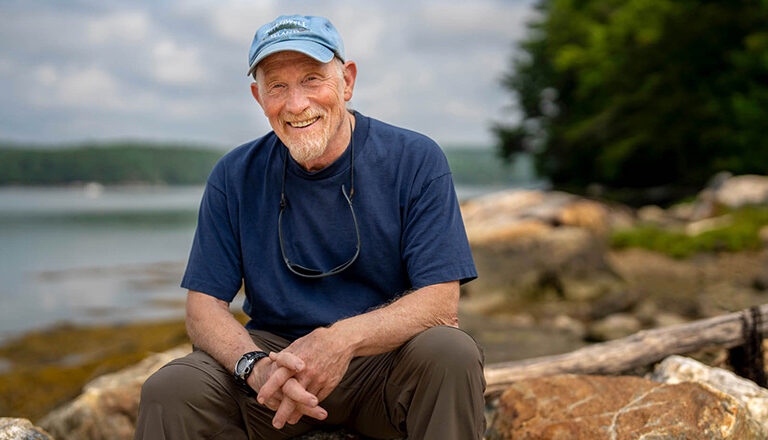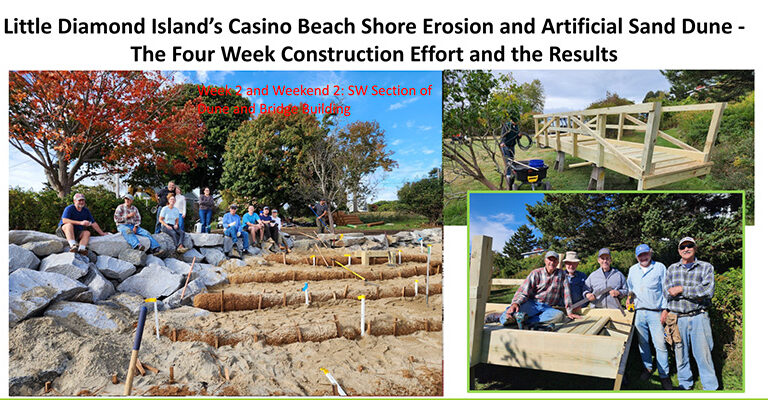When three land-based fish farming proposals—in Jonesport, Bucksport, and Belfast—became public several years ago, they generated the expected support for their economic potential and opposition for possible environmental impacts. Early in 2025, none of the three proposals has broken ground; the Belfast project has been withdrawn, the Bucksport project’s permits have expired, and the Jonesport proposal is still facing legal challenges.
While the coastal proposals for these recirculating aquaculture systems are dead or struggling, an active land-based project, Great Northern Salmon in Millinocket, is moving forward with plans to build a salmon farm that will produce more than 7,500 metric tons, or 16.5 million pounds, of freshwater-raised salmon per year.
The co-founders of the Millinocket company, Marianne Naess and Eric Heim, were at one time involved in the proposed Belfast project under the corporate banner of Nordic Aquafarms. Naess, the CEO of the Millinocket project, says she holds little hope for the success of any salmon farm on the coast.
“This is my fourth,” Naess said. “I was involved in one of the contentious ones on the coast [Belfast.] The future of salmon farming in the U.S., in our opinion, is in freshwater and away from the coast. I don’t think you’ll see any RAS facilities on the coast in the near future.”
Great Northern Salmon is located on a 45-acre former paper mill site. Working in partnership with Our Katahdin, a local nonprofit, the company has begun cleaning up two lagoons located on the property—one five acres and the other 22 acres. The papermill filtered the sludge and deposited it in the lagoons before discharging the residue into the river.
“Basically, this is a clean-up project funded by the EPA,” Naess said. “‘Our Katahdin got a $5 million grant to do this.”
She said the remediation work is expected to be finished by late summer 2025. The company projects the salmon farm will create 70 full time jobs with benefits. Unlike virtually every other salmon farm proposed in Maine, the Millinocket plant has encountered no opposition during the permitting process.
“We have great support in the community,” Naess said. She said Great Northern’s operation will be small in comparison to projects proposed along the coast. The product, she said, will be trucked to Boston and distributed regionally.
“It can’t be too small,” she added, “but with all of the technology you have to implement and the treatment discharged, you need a certain scale. There is a sweet spot. A lot of these proposals, I think, initially, were too big.”
Kingfish, Maine, Inc., a subsidiary of The Kingfish Co. in the Netherlands, is proposing in Jonesport a $110 million RAS facility, which the company says will eventually produce 8,000 metric tons of yellowtail kingfish a year and create between 70 and 100 jobs. In July, it won a ruling by the Maine Business and Consumer Court on a challenge by opponents.
Two appeals of state permitting by opponents were denied. Kingfish Maine’s state-issued environmental permits were previously upheld by both the Maine Board of Environmental Protection and the Maine Superior Court. Kingfish now awaits a final ruling on a separate appeal of its state permits under consideration by the Maine Supreme Judicial Court.
Opponents say wastewater from the operation would pollute Chandler Bay with nitrogen, among other things, and could lead to toxic algae blooms. But Kingfish representatives claim there are multiple safeguards to monitor the effluent going into the bay.
Kingfish Maine officials note it has been monitoring the water in Chandler Bay since 2022. The monitoring takes place every three weeks, May through October. The company has not begun operations but agreed to additional monitoring as part of its municipal permit.
Farther down the coast, Nordic Aquafarms, which has faced strong opposition in Belfast to its proposed $500 million salmon farm on the Little River, had a suit pending in Maine Superior Court against the Belfast City Council. The suit was triggered by the council’s vote May 7 to reverse approval of the seizure of
intertidal land Nordic required to lay pipes between the farm and the sea.
The city reversed its approval of the eminent domain action following a court ruling that Nordic Aquafarms did not have the right to lay pipes across the mudflats, which had disputed ownership.
In January, the company announced it was dropping its bid for the project in Belfast.
In Bucksport, Whole Oceans in 2018 proposed building a land-based salmon farm on the site of the former Verso paper mill. Local residents embraced the project as a means of replacing the jobs and taxes once provided by Verso. But since that time, Whole Oceans’ local permits have expired.
The Maine Monitor recently reported the development, operation, and management of the project are likely the issue with the end cost much higher than what was originally projected.





